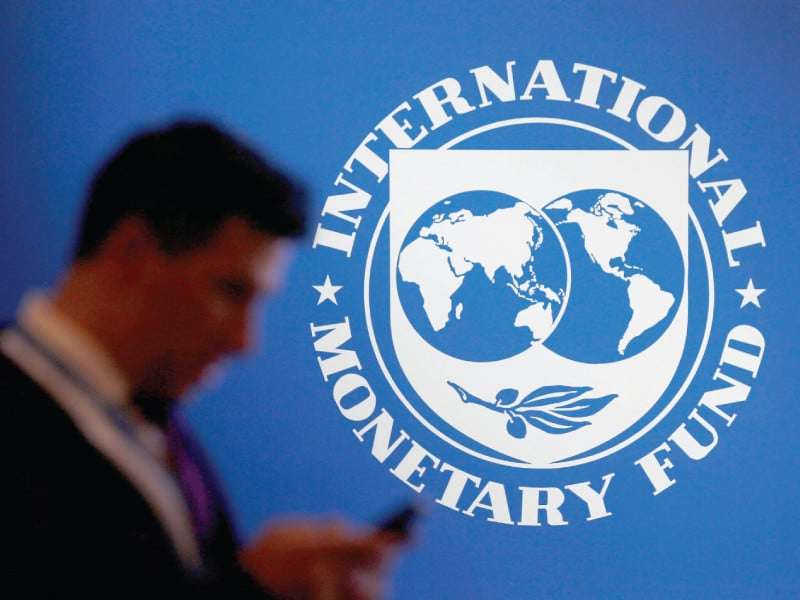
|
Getting your Trinity Audio player ready...
|
Introduction
Prime Minister Shehbaz Sharif is set to meet International Monetary Fund (IMF) Managing Director Kristalina Georgieva in Dubai today. The meeting comes just three weeks before the scheduled review of the $1 billion second loan tranche under Pakistan’s $7 billion IMF bailout program.
Sources have confirmed that the high-profile meeting will occur on the sidelines of the World Governments’ Summit in Dubai, which brings together global leaders, policymakers, and private sector executives.
PM Shehbaz Sharif’s Visit to Dubai
Official Visit and Delegation
PM Shehbaz Sharif embarked on a two-day official visit to the United Arab Emirates (UAE) on Monday. Accompanying him is a high-level delegation, including Deputy Prime Minister Ishaq Dar and other senior cabinet members.
Finance Minister Muhammad Aurangzeb has also been requested to join the meeting upon his return from Lisbon, Portugal.
Significance of the Visit
This marks the third meeting between PM Sharif and Kristalina Georgieva in the last ten months. The previous meeting took place on the sidelines of the United Nations General Assembly in New York, where Georgieva reiterated the IMF’s support for Pakistan’s economic reforms.
Purpose of the Meeting with IMF Chief
The primary agenda for the meeting remains undisclosed. However, it is widely speculated that Pakistan is looking to secure favorable terms ahead of the critical loan review scheduled for March 3-14 in Islamabad.
The meeting is also expected to touch upon Pakistan’s recent economic policy shifts, including:
- The introduction of an Agriculture Income Tax Law in Sindh.
- Adjustments in gas pricing for industrial power generation.
- Efforts to maintain a primary budget surplus.
- Implementation of provincial cash surplus targets.
Challenges Facing Pakistan’s Economy
Economic Pressure from Various Sectors
The Pakistani government is facing mounting pressure from different economic sectors:
- Real Estate Industry: Business leaders are urging the government to lower taxes on property transactions.
- Salaried Class: Employees continue to bear the brunt of high taxation, rising inflation, and increased living costs.
- Teachers’ Protests: Educators are demanding the reinstatement of a 25% income tax rebate, which was recently withdrawn by the government.
Federal Board of Revenue (FBR) Performance Concerns
A crucial aspect of the IMF loan review is Pakistan’s ability to meet its revenue collection targets. The Federal Board of Revenue (FBR) is under scrutiny, and its performance will be a key factor in upcoming negotiations.
Pakistan Sovereign Wealth Fund Act Amendments
The government is also working on amendments to the Pakistan Sovereign Wealth Fund Act, another vital condition for IMF compliance.
Ongoing IMF Assessment in Pakistan
An IMF Governance and Corruption Diagnosis Assessment Mission is currently in Pakistan, evaluating the country’s financial transparency and anti-corruption measures. Key developments include:
- Meetings with Financial Monitoring Units.
- Consultations with the Money-Laundering and Combating of Financing of Terrorism Authority.
- Upcoming discussions with the Supreme Court and the Judicial Commission of Pakistan.
The assessment report will be published in July, and its recommendations could introduce additional conditions for Pakistan’s economic reforms.
Impact of IMF Loan Review on Pakistan
Government’s Optimism
Despite existing challenges, Pakistani authorities remain confident in successfully securing the next tranche of the IMF loan. A positive review would:
- Provide financial stability to the country.
- Prevent the loan program from collapsing prematurely.
- Boost investor confidence and economic growth prospects.
Implications for Pakistan’s Economy
A successful negotiation could mean:
- Easier access to international funding.
- More fiscal discipline and accountability.
- Potential for reduced inflation in the long run.
Conclusion
The high-stakes meeting between PM Shehbaz Sharif and IMF MD Kristalina Georgieva in Dubai is crucial for Pakistan’s financial future. With the IMF loan review approaching, the government must ensure compliance with economic conditions while addressing internal economic pressures.
The coming weeks will be critical in determining the outcome of Pakistan’s IMF negotiations, which will have far-reaching effects on the country’s economic stability.
FAQs
1. Why is PM Shehbaz Sharif meeting the IMF chief in Dubai?
PM Shehbaz Sharif is meeting the IMF chief to discuss Pakistan’s economic progress and prepare for the upcoming IMF loan review, scheduled for March 3-14.
2. What are the key concerns for Pakistan’s economy right now?
Pakistan faces economic pressure from the real estate sector, the salaried class, and educators protesting increased taxation. Additionally, the Federal Board of Revenue’s performance is a concern in upcoming IMF negotiations.
3. How much financial aid is Pakistan seeking from the IMF?
Pakistan is looking to secure the second $1 billion tranche of its $7 billion IMF bailout program.
4. What are the IMF’s conditions for Pakistan?
The IMF has imposed several conditions, including:
- Fiscal discipline and maintaining a primary budget surplus.
- Implementation of new tax policies, including the Agriculture Income Tax Law.
- Amendments to the Pakistan Sovereign Wealth Fund Act.
5. What happens if Pakistan fails to meet IMF conditions?
If Pakistan fails to meet the IMF’s conditions, it risks losing financial support, which could lead to economic instability and a lack of investor confidence.





